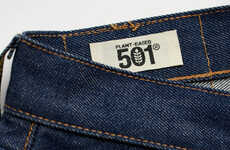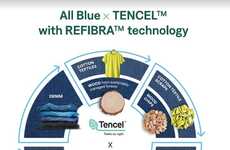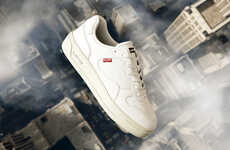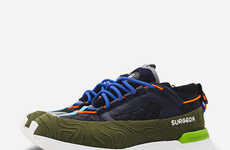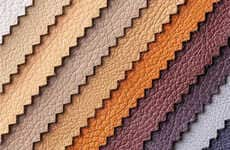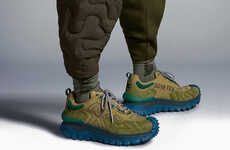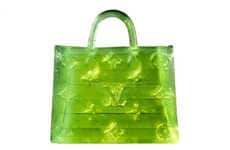
Levi's Plant-Based 501 Jeans are Made from the Fabric of Older Jeans
Laura McQuarrie — July 11, 2023 — Eco
In the world of fashion, the classic Levi's 501s have endured as a timeless style and with the Levi's Plant-Based 501s, the brand is making more of a commitment to a sustainable future. These jeans are made from 97% bio-based materials, including the fabric of older jeans. With certified organic cotton, natural indigo dye, wood waste ink and a patch made from Natural Fiber Welding's Mirum, a plastic-free vegan leather alternative, every aspect of the plant-based denim has been carefully considered.
This plant-based style commemorates the 150th anniversary of the Levi's 501s and with this launch, the brand hopes that denim lovers around the world get the sense that "stories and experiences are being passed down each time a purchase is made."
This plant-based style commemorates the 150th anniversary of the Levi's 501s and with this launch, the brand hopes that denim lovers around the world get the sense that "stories and experiences are being passed down each time a purchase is made."
Trend Themes
1. Sustainable Fashion - The use of bio-based materials and vegan leather alternatives in denim production creates opportunities for sustainable fashion brands.
2. Circular Economy - The upcycling of older denim into new jeans showcases the potential for a circular economy in the fashion industry.
3. Ethical Consumerism - The emphasis on certified organic cotton and natural dye appeals to consumers seeking ethical and environmentally friendly fashion choices.
Industry Implications
1. Fashion Manufacturing - The production of plant-based denim and the utilization of upcycled materials presents opportunities for innovation in fashion manufacturing.
2. Sustainability - The use of bio-based materials and circular economy practices can disrupt the sustainability sector by providing eco-friendly alternatives to traditional fashion production.
3. Textile Recycling - The upcycling of older jeans into new denim highlights the potential for innovation and growth in the textile recycling industry.
7.3
Score
Popularity
Activity
Freshness

